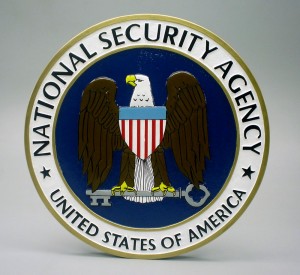
MANILA (Mindanao Examiner / June 12, 2013) – Recent revelations about the scope of US national security surveillance highlight how dramatic increases in private digital communications and government computing power are fueling surveillance practices that impinge on privacy in ways unimaginable just a few years ago, Human Rights Watch said in a statement sent to the Mindanao Examiner.
There is an urgent need for the US Congress to reevaluate and rewrite surveillance laws in light of those technological developments and put in place better safeguards against security agency overreach.
A string of media reports describing secret US surveillance programs underscore the degree to which laws originally designed to track phone records relating to criminal investigations have been expanded to authorize the collection of vast quantities of new forms of data that intrude much more deeply into the private lives of both citizens and non-citizens.
“Existing laws do not seem to have kept up with the threat to privacy and other rights posed by the government’s relatively new capacity to collect and analyze quickly vast quantities of personal information,” said Kenneth Roth, executive director at Human Rights Watch. “Because oversight is secret and inspires little confidence, there is every reason to fear that the scope of surveillance extends far beyond what can be justified by the government’s legitimate interest in addressing terrorist or other security threats.”
A report in The Guardian says intelligence agencies are collecting information from phone companies relating to the calls of millions of people, under orders granted in secret proceedings by the Foreign Intelligence Surveillance Act (FISA) court.
The leaked order requires Verizon Business Services, under Section 215 of the Patriot Act, to produce information related to all telephone calls in its systems, both within the United States and between the US and other countries. The order is valid for three months but appears to be regularly renewed.
The information sought is “metadata,” which includes the numbers of both parties to a call, their locations, the time and duration of the calls, and other identifying information. The contents of conversations are not covered, but the government has an ever increasing capacity to analyze metadata to show the caller’s likely identity, social networks, and other patterns or behavior the government may want to target.
The Wall Street Journal has reported that the NSA is also collecting records from AT&T and Sprint, Internet service providers, and information about credit card transactions. The government’s rapidly growing capacity to cross-reference and analyze this data enables it to paint a stunningly complete picture of the life of almost anyone whose data it picks up.
An article in the Washington Post describes another program under which US Internet companies, including Google, Facebook, and Microsoft, are compelled through secret FISA court orders to facilitate collection of user data and monitoring of communications by US government agencies.
Training slides released by the Washington Post indicate that agencies can obtain a range information through the program, including emails, voice chat, photos, and social networking details, from a number of major Internet companies. Subsequent media reports and responses from Internet companies have called into question the exact mechanism that companies are using to facilitate access to information.
However, official statements issued June 6 and 8 from the director of national intelligence, James Clapper, confirmed that Internet surveillance activities were being conducted under Section 702 of the FISA Amendments Act. Given the secrecy involved, it is not clear whether these court orders permit vacuuming up data on the same magnitude as the Verizon order.
Companies that receive orders under FISA and the Patriot Act are generally prohibited from disclosing the existence of these orders. The decisions and authorizations of the FISA court are also secret and congressional oversight operates through highly classified and restrictive briefings that prevent broad discussion.
Human Rights Watch is deeply troubled by the apparent lack of any consideration by the US government for the privacy rights of non-US citizens. The US Constitution may have been interpreted to grant privacy rights only to US citizens or people in the United States, but international human rights law recognizes that everyone is entitled to respect for their privacy. With so many electronic communications traveling through the United States, the lack of any regard for the privacy rights of non-US citizens raises very troubling concerns.
“The United States wants to be the Internet capital of the world, but it undermines that status by giving no regard to the privacy rights of anyone who is not a US citizen or physically in the United States,” Roth said.
Congress should reassess whether FISA and the Patriot Act allow the government too much latitude to engage in unjustifiably broad and arbitrary surveillance, Human Rights Watch said.
Given concern about the vigor of congressional oversight, Human Rights Watch urged the creation of an independent panel with subpoena power and all necessary security clearances to examine current practices and to make recommendations to ensure appropriate protections for rights to privacy, free expression, and association. The administration should also come forward to the public on the scope and specific controls on its various data surveillance programs.
Human Rights Watch also expressed concern about the precedent these programs might set globally because they could give other governments a rationale for adopting widespread and arbitrary surveillance of phone and Internet activity.
“The US government’s credibility as an advocate for Internet freedom is at serious risk unless it ensures that privacy is protected along with security and acts with much greater transparency,” said Roth. “There is a real danger that other governments will see US practice as a green light for their own secret surveillance programs. That should be chilling to anyone who goes online or uses a phone.”

